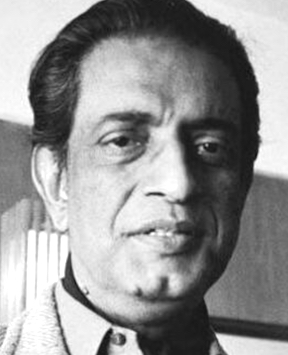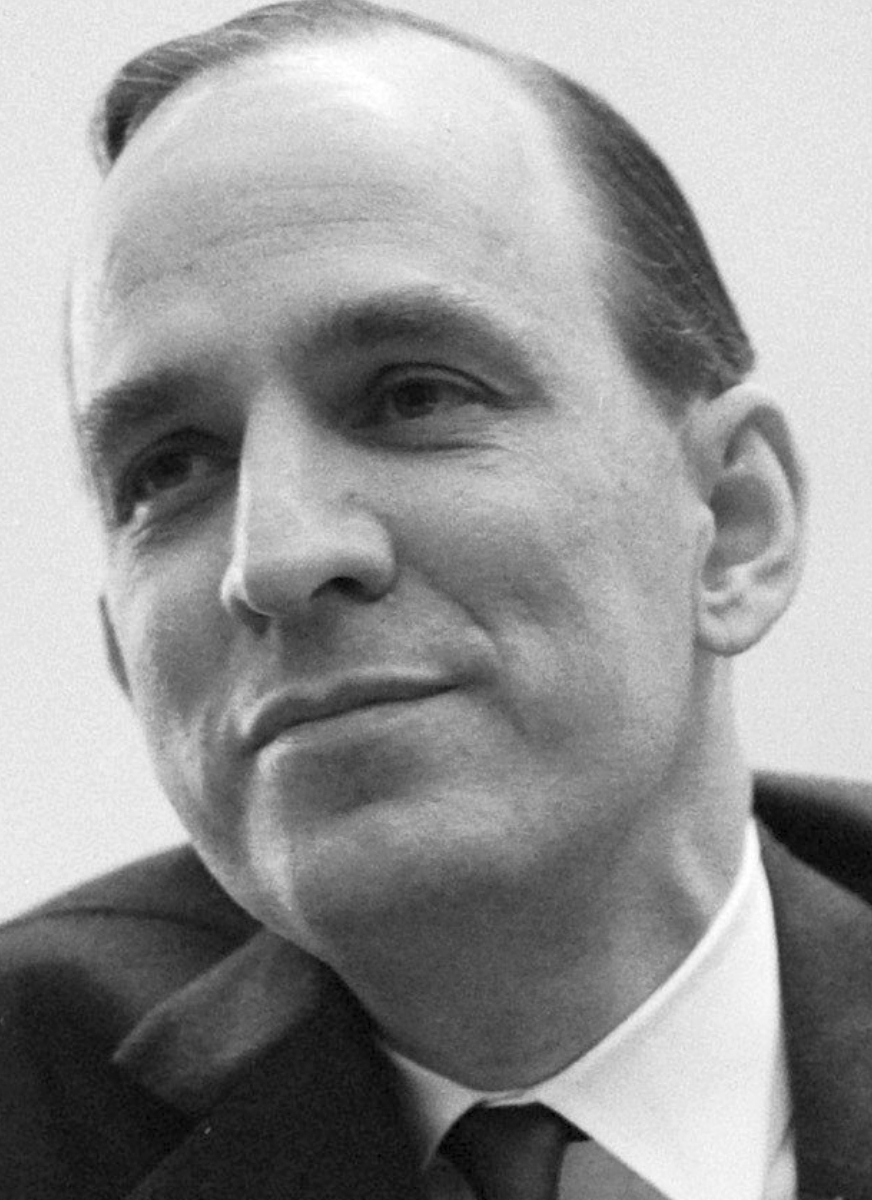filmmakers
Satyajit Ray

On this date in 1921, legendary filmmaker Satyajit Ray was born in Kolkata, India. His father, Sukumar Ray, was an eminent children’s writer and illustrator who died when he was 2. His mother raised him in the home of his paternal grandfather Upendrakishore Ray Chowdhary, also an accomplished writer.
After earning a degree in economics from Presidency College, Ray majored in fine art at the Visva-Bharati University, established by Nobel laureate Rabindranath Tagore. He then went on to work for a British advertising agency.
Ray had developed a deep interest in cinema by this time and helped establish the Calcutta Film Society. He assisted the iconic French director Jean Renoir when Renoir filmed “The River” in India in 1951. Ray decided to adapt a Bengali novel for his first film, “Pather Panchali” (“Song of the Little Road”).
This became the initial installment of the Apu trilogy, thought to be one of the finest achievements in the history of cinema. Ray went on to direct 36 movies, including 29 feature films, many of which are considered classics.
A humanist ethos pervaded his movies, which ranged from historical treatments and contemporary sociopolitical themes to interpersonal sagas and detective stories. His depiction of women was particularly noteworthy, with a number of his movies featuring strong female protagonists.
His work won awards at major film festivals, including Cannes, Venice and Berlin, and received admiration from directors such as Martin Scorsese (who led the campaign to get Ray an Oscar) and Wes Anderson (who used Ray’s music as the background score for “The Darjeeling Limited”). Ray’s Honorary Academy Award in 1992 “in recognition of his rare mastery of the art of motion pictures and of his profound humanitarian outlook” was flown into his Kolkata hospital room. He died 24 days later.
Ray’s movies often critique organized religion. “Devi” (“The Goddess”) portrays the negative ramifications of a young bride being worshipped as divine in 19th century rural Bengal. “Ganashatru” (“An Enemy of the People”), an adaptation of the classic Ibsen play, shows how a doctor is ostracized when he has the temerity to point out that the supposedly holy temple water is contaminated.
“Mahapurush” (“The Holy Man”) exposes godmen. (Godman is a term for a type of healer or spiritual leader with paranormal powers seen as a demigod-like figure by cult followers.) “Sadgati” (“Deliverance”) depicts the horrific consequences of the caste system. Ray was born to a reformist Hindu family but made clear his disdain for religion even if he sometimes hedged on his nonbelief.
“I was born into the Brahmo [a reformist Hindu sect] community, but I dislike such labels. Hinduism attracts me, with its coiled cultural layers, only as a rich source of contrastive situations and personalities. Well, I guess I’m an agnostic.” (“Satyajit Ray: Interviews,” ed. Bert Cardullo, 2007)
Ray suffered a heart attack in 1983 that severely limited his productivity in the remaining years of his life. A heavy smoker but nondrinker, he often worked into the wee hours of the morning. He died at age 70 due to his heart condition. (D. 1992)
PHOTO: Ray in New York in 1981; photo by Dinu Alam under CC 4.0.
INTERVIEWER: “Do you believe in God?”
RAY: “No. I don’t believe in religion either. At least not in organized religion. Nor have I felt the necessity for any personal religion.”— India Today, Feb. 15, 1983
Ingmar Bergman

On this date in 1918, Ingmar Bergman was born in Uppsala, Sweden, the son of a strict Lutheran minister. He studied art and literature at the University of Stockholm, went into theater, and made his directorial film debut in 1944. His 1955 “Smiles of a Summer Night” attracted international acclaim, followed by “Wild Strawberries (1957) and “The Seventh Seal” (1957), in which a knight portrayed by Max von Sydow challenges Death to a chess match.
He then made “The Virgin Spring” (1960), “Persona” (1966), “Scenes from a Marriage,” co-starring one of his favorite actresses, Liv Ullman (1974), and “Fanny and Alexander,” which won a Best Foreign Film Oscar in 1983. His 50 feature films often explored existential questions. Bergman once said, “I believe in other worlds, other realities. But my prophets are Bach and Beethoven.” (New Yorker Staats-Zeitung July 9, 2005.)
He was married five times: to Else Fisher, Ellen Lundström, Gun Grut, Käbi Laretei and Ingrid von Rosen, and had nine children. He died at age 89. (D. 2007)
PHOTO: Bergman in Amsterdam in 1966; Joost Evers/Anefo photo under CC 3.0.
“You were born without purpose, you live without meaning, living is its own meaning. When you die, you are extinguished. From being you will be transformed to non-being. A god does not necessarily dwell among our capricious atoms.”
— Bergman, "The Magic Lantern: An Autobiography" (1987)
